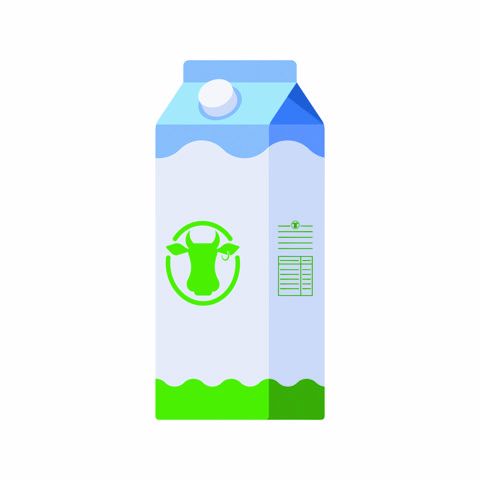Q: The milk I buy says it is ultra-pasteurized. Does that make it an ultraprocessed food?
A: Alice H. Lichtentein, DSc, a professor at the Friedman School and editor-in-chief of this newsletter, answers: “No! Pasteurization is the process of quickly heating and then cooling perishable beverages like milk and fruit juice to kill off dangerous bacteria. Regular pasteurization heats milk to 161°F for 15 seconds. Ultra-pasteurized milk had been heated to around 280°F for two seconds. Both processes kill 99.9 percent of bacteria including Salmonella, E. coli, and bacteria that cause tuberculosis. Ultra-pasteurization also kills the bacteria that lead to spoilage. That’s why ultra-pasteurized milk lasts three times longer than pasteurized milk.
“Raw (unpasteurized) milk is dangerous. Only 12 states allow stores to sell raw milk, and it’s illegal to sell it across state lines. Pasteurization minimizes the risk of food poisoning, but it also lets you enjoy unspoiled milk no matter how far you live from a dairy farm. Your milk may have to travel a considerable distance to make it to your supermarket. Then it sits in the refrigerated storeroom and in the display case and in your cart and car before making it into your fridge. There is an advantage to having fresh-tasting milk that lasts at least a week before you need to buy more.
“There is no agreed-upon definition for ‘ultraprocessed’ foods in the scientific world, but the simplest way to look at it at the consumer level is to consider a food’s distance from whole ingredients. The more an ingredient is altered, the more processed it is. For example, a bag labeled ‘apple chips’ could contain pieces of thinly sliced, dehydrated apples, or a mixture of refined ground corn, oil, sugar, salt, and apple flavor. The dehydrated apples are processed to remove the water, but their nutrient content and structure is only minimally altered. The apple-flavored corn chips have clearly undergone a much higher level of processing and may not contain any apples. Ultra-processed foods—the ones research suggests are associated with negative health effects—will typically have words on the ingredient list that are unfamiliar and difficult to pronounce.
“Pasteurized milk, even ultra-pasteurized milk, is simply milk. Despite being briefly heated (and the addition of vitamin D and, for lower fat milks, vitamin A as well), it is still a whole food.”
























